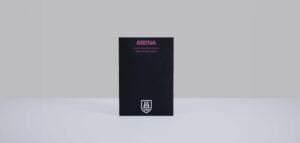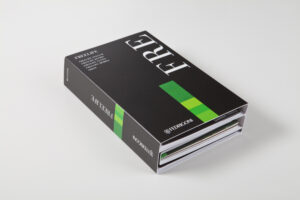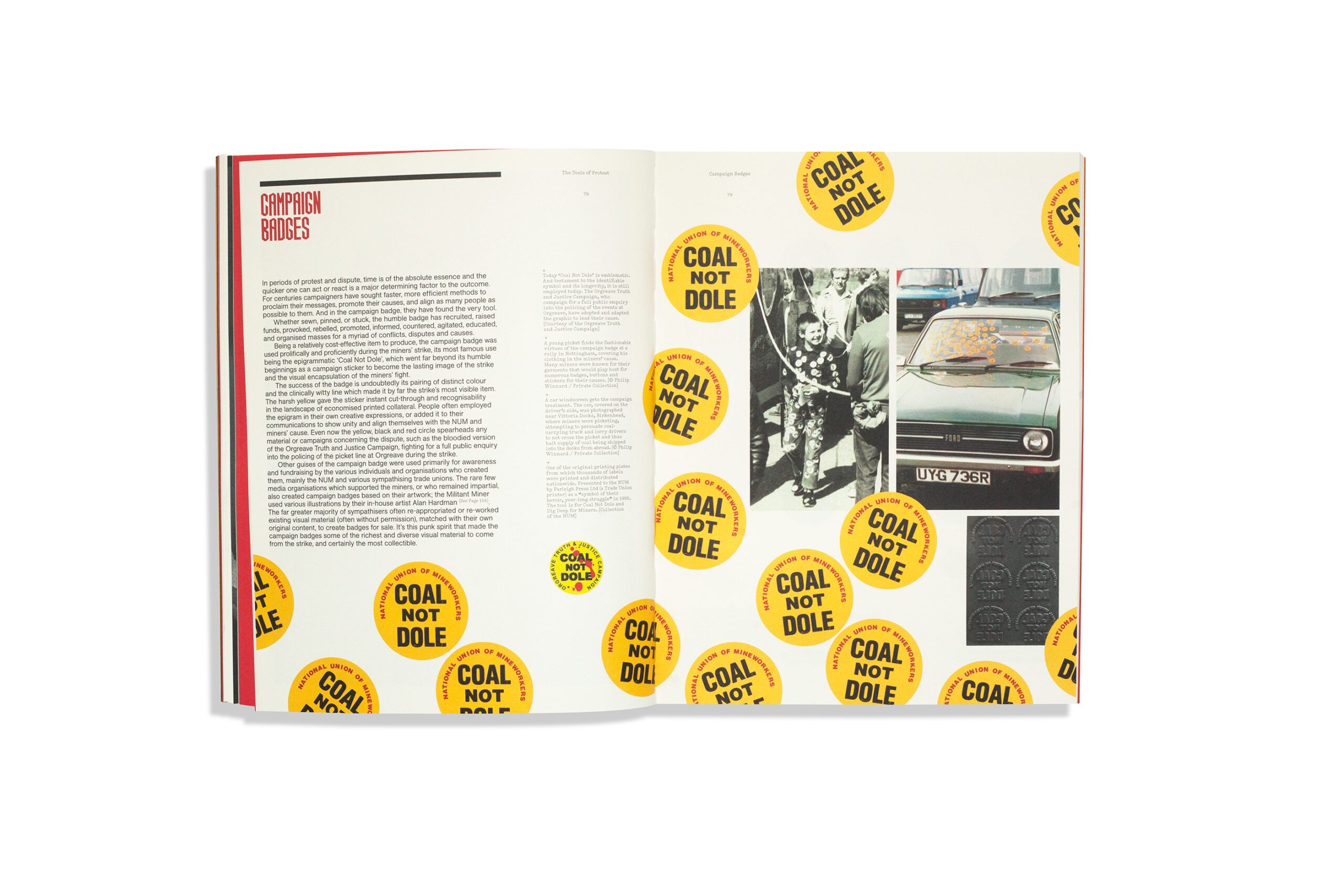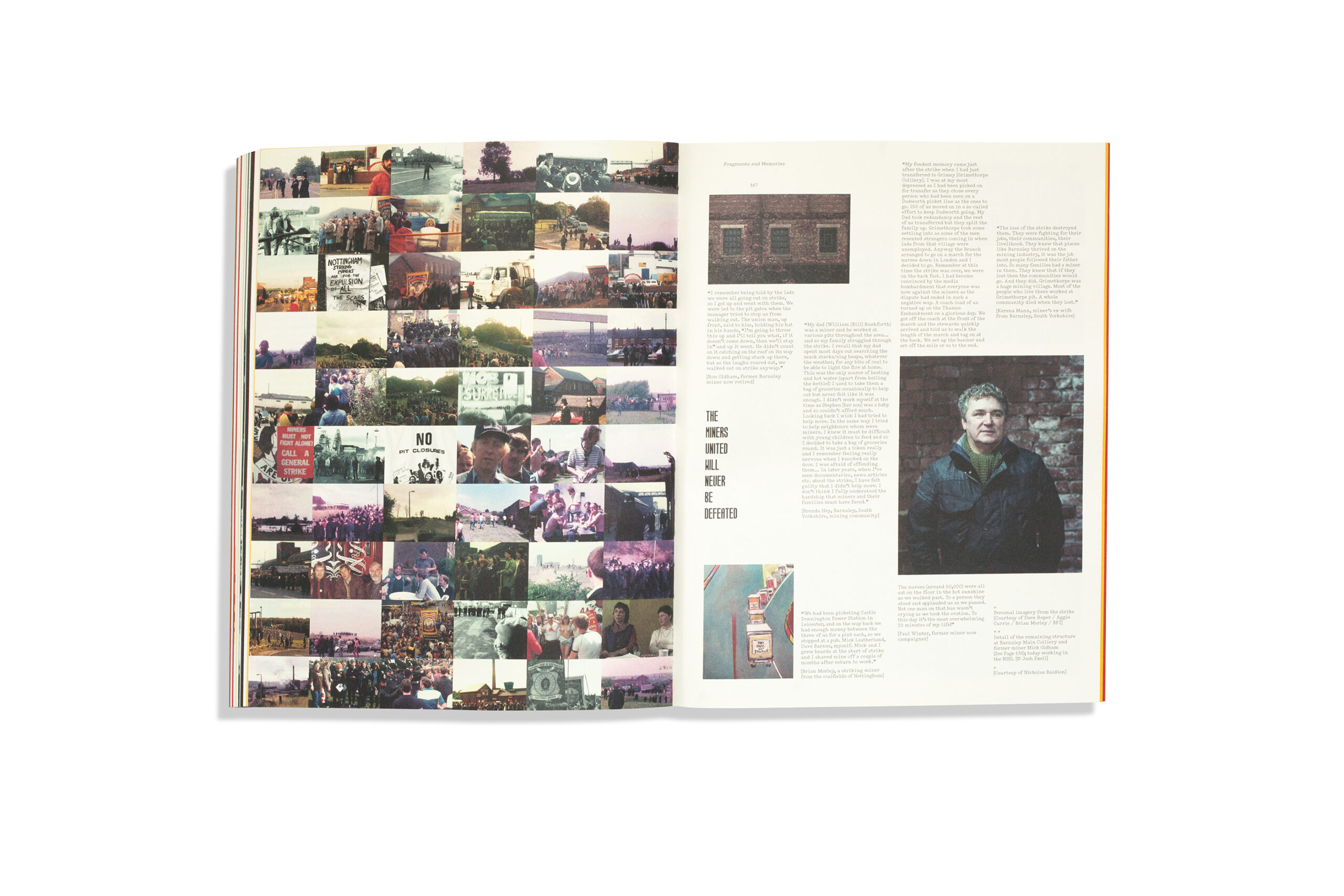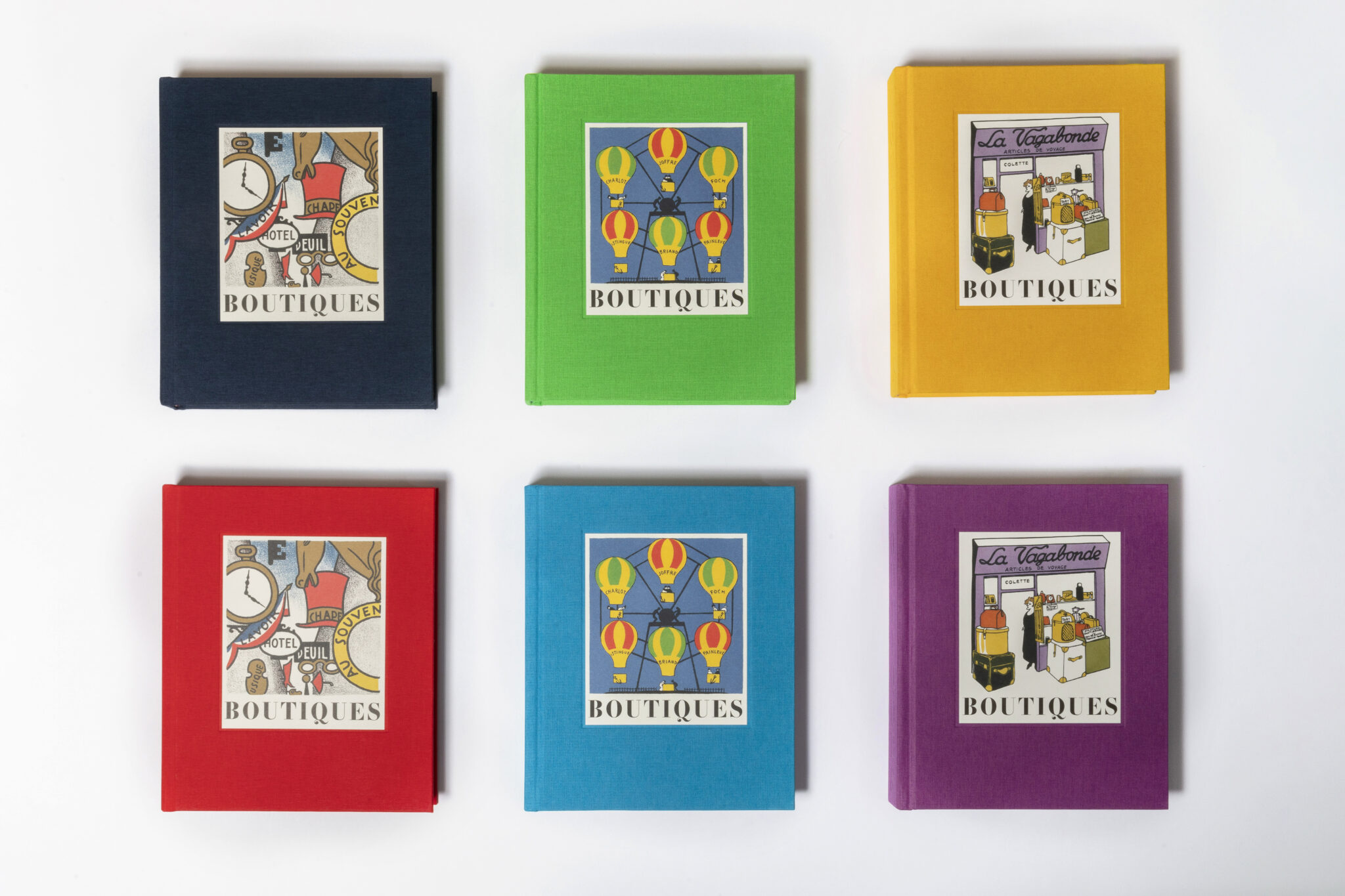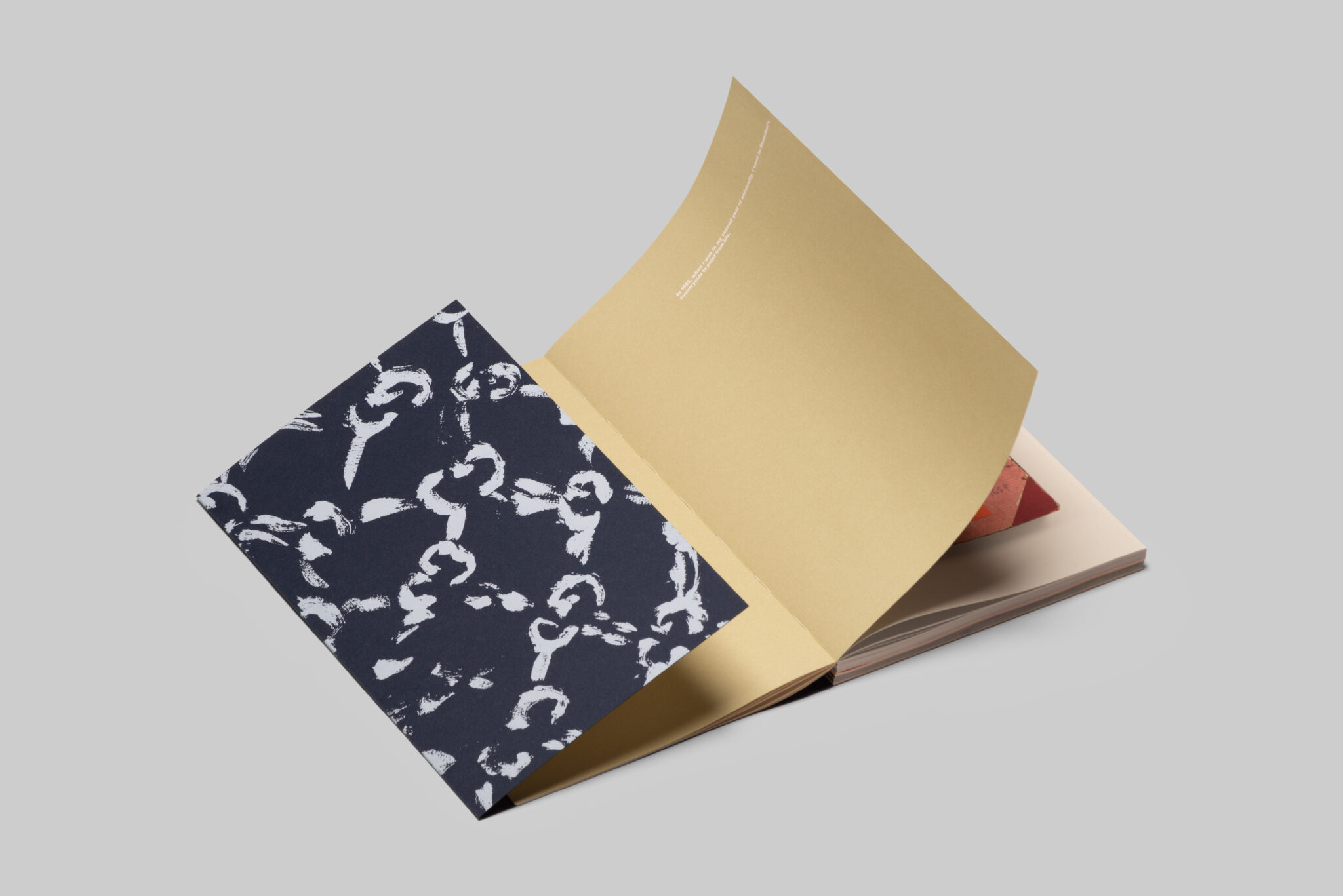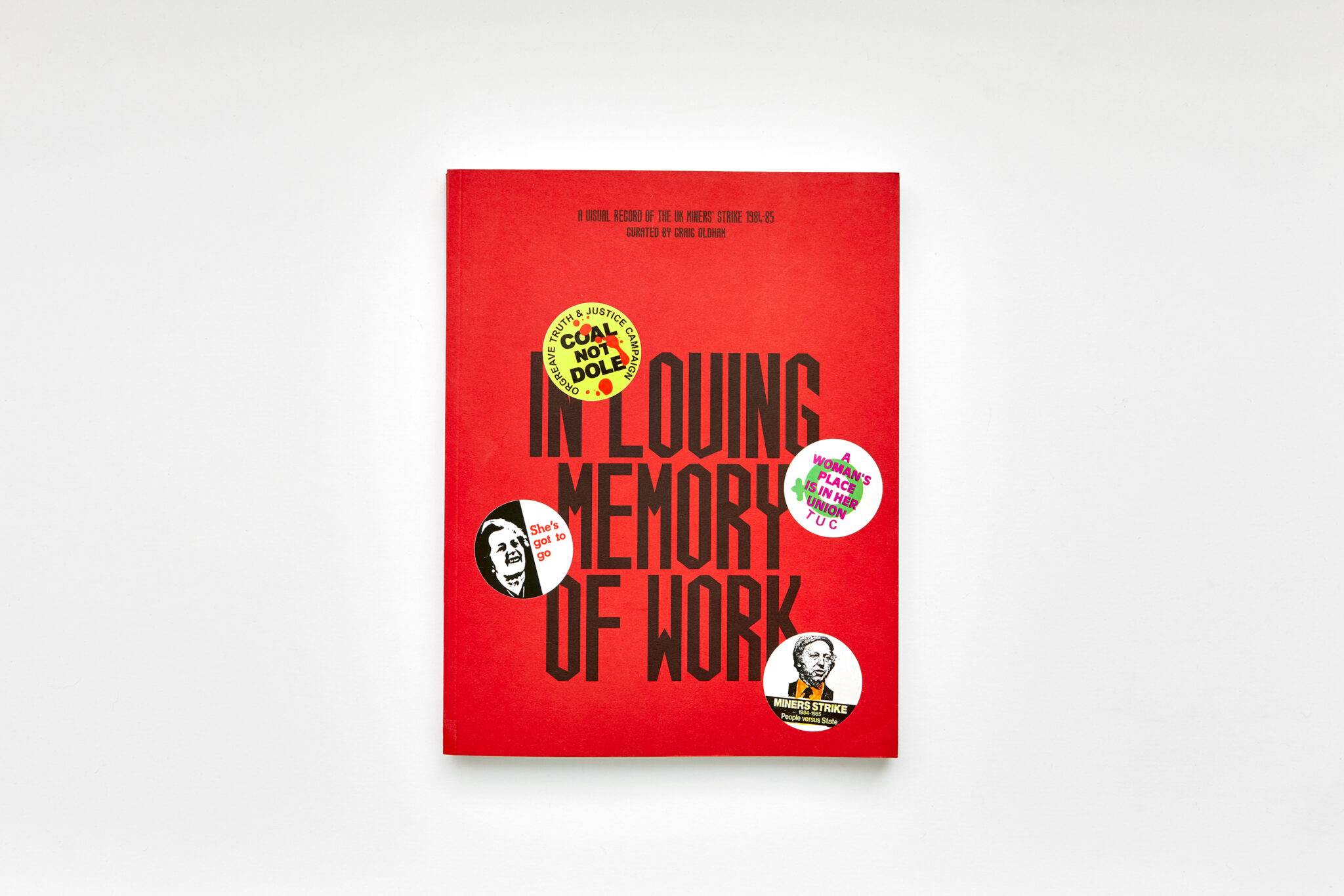
In Loving Memory of Work by Craig Oldham
“In Loving Memory of Work”, curated and designed by Craig Oldham, is a visual narrative of the UK miners’ strike that occurred in 1984-85, a defining class conflict during Margaret Thatcher’s government. Following its initial edition in 2015, a second lithographic reprint was produced in 2023 by British printer DXG using a Heidelberg XL 106-5 XL InPress Control 3 Machine, and it is currently distributed by Rough Trade. Printed on Arena Ivory Smooth and Symbol Freelife Satin Premium White, both uncoated and coated papers have been selected by Craig himself in collaboration with DXG.
Craig Oldham embarked on this project as a tribute to his upbringing in Barnsley, South Yorkshire, a region deeply embedded in coalfield culture and community. He identifies as a “strike bairn,” born shortly after the conclusion of the 1984-85 miners’ strike into a three-generation mining family.
When the 30th anniversary of the strike approached, Oldham felt the need to honour his community. He began collecting materials from family, friends, and others involved in or affected by the strike, supplementing these with resources from archives and museums, particularly the Working-Class Movement Library in Salford. The project naturally evolved into a book documenting the strike’s impact and its visual language, serving as a form of activism to preserve its memory and reach new audiences. It captures a significant period through creative and cultural action, aiming to keep the struggle alive through education, reappraisal, and remembrance for future generations.
In this sense, the book stands as a testament to the miners’ struggles, highlighting the state’s power imbalance and the ongoing need for justice. This visual storytelling, encapsulated in the book, holds significant historical and social relevance, demonstrating what communities can achieve collectively. As Oldham asserts, “when it comes to dissent, creativity is necessary because you have to find new, different, countless ways into and around a problem in order to try and find or ignite a solution. This is the very essence of activism. Activism is a constant fight that utilizes any and all avenues in order to achieve that goal, and the more innovative they are, the broader their reach or success in communicating, the more they need to be creative.” This is exemplified by the women’s movement during the strike, which used creativity not only to raise funds and supplies but also to challenge the establishment, or by the way complex political disputes can be encapsulated in three simple words: “Coal Not Dole.”
The respectful presentation of the strike’s legacy is also reflected in the choice of a warm off-white paper, such as Fedrigoni uncoated Arena Ivory Smooth, which enhances the colours and provides an archival feel. Although primarily printed on uncoated paper, the “Disobedient Objects” section uses Symbol Freelife Satin Premium White, a coated stock, instead to give depth and detail sharpness to Tim Ainsworth’s still life photographs. This section is indeed a standout in the second edition, showcasing the originality of mining communities through repurposed objects. Objects, often mass produced for a certain functionality are taken and subverted for another purpose, such as bedsheets turned into banners, toolboxes used as collection boxes, and plates made political tools.
Copies of “In Loving Memory of Work” are available here.
Proceeds from the book and its typefaces, specifically crafted for this publication and inspired by artefacts from the strike, are donated to the Orgreave Truth and Justice Campaign, a cause close to Oldham due to his father’s involvement in the 1984 Orgreave confrontation.



